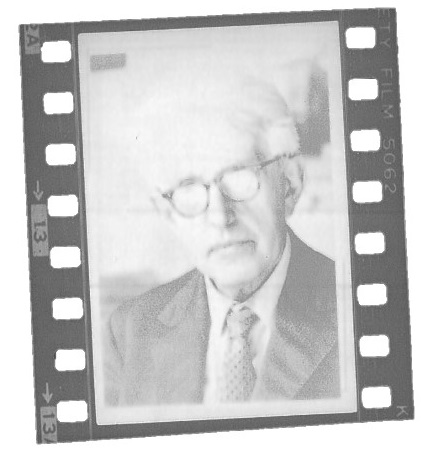refugee week talk
Exile and precarity in the 1930s
The journey from Nazi Germany to the UK (via Switzerland) is a key component of Cassirer’s scholarly biography. For it was not only a shift in geography, but also for the direction of his scholarship.
In German, Cassirer had translated Nicolas de Cusa’s dialogue with a layman and published a book about Aristotle’s psychology. In English, he would write commentaries on Kant’s first and third critiques, and then produce English translations of the New Testament, Kant’s second critique (on Practical Reason), and Sophocles’ last play.
Heinz Cassirer research associate Dr Iona Hine will explore his early years in the UK and the pressures that reshaped his studies as part of the 2020 Migration Matters festival. She explains:
“From the moment I first read Cassirer's joking admission that he had not wanted to study Kant (see right), I felt a kindling kinship. Reading Kant and making sense of his arguments requires effort. Writing meaningfully about what Kant meant, and doing so in a newly acquired language, is harder still. So I also felt a kind of intrigue: If Cassirer didn't really want to, why did he spend two decades studying and writing about Kant?
“The answer, as I came to it, seems to be largely about academic precarity, and the very particular academic precarity Cassirer experienced as an early career academic forced to migrate to continue in academia—and the limits of the welcome he received in Oxford and Glasgow.
“To illuminate this aspect of Cassirer's life history, I visited the archives of the Society for the Preservation of Science and Learning (now the Campaign for At-Risk Academics). The festival talk will explore what I found during that research trip. I hope that subsequent discussion will enable participants to share and increase awareness of the challenges academic migrants faced then and face now.”
“Everyone is familiar with a certain doctrine, allegedly Kantian, according to which it is essential to the morality of an action that it should be done contrary to the immediate inclination of the agent. If this be true, I may indeed claim that purely moral motives have guided me in my Kantian studies upon which I have been engaged for about twenty years.”
--Cassirer in the Preface to his commentary on Kant's First Critique, p. 9.
About Migration Matters
In 2007, Sheffield became the UK’s first City of Sanctuary for asylum-seekers and refugees—a city that takes pride in the welcome it offers to people in need of safety. The city's Migration Matters festival is an annual manifestation of that pride, celebrating the positive impact of migration and refugees here and throughout the UK as part of Refugee Week.
For more information about the festival see:
Pre-register to join the live audience (via Zoom using Q&A tools) / watch the livestream on the Festival website / catch it on playback throughout Refugee Week (after the event).

